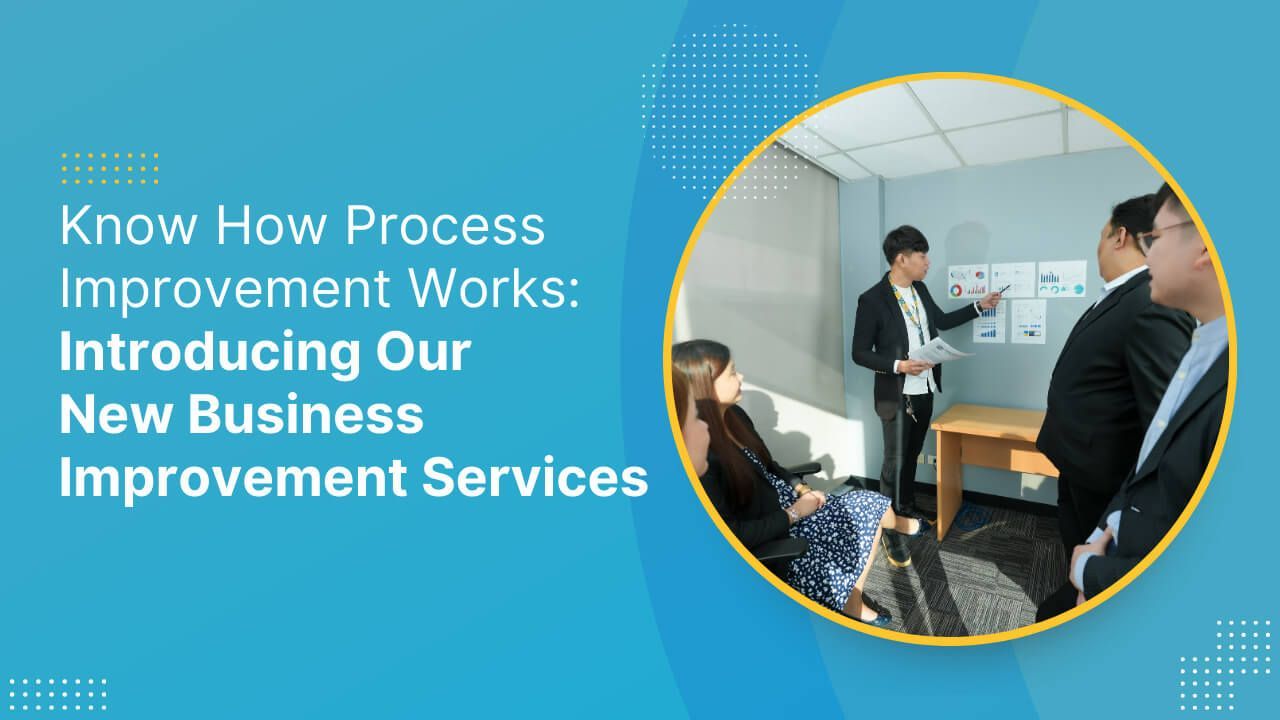Learn how offshoring can power your business into a growth engine. Get your FREE E-Book Today!
WHY OUTSOURCE TO THE PHILIPPINES?
28 November 2022
You have probably heard that offshoring is one of the best strategies for improving your business’ efficiency, performance, and productivity. But offshoring will only be successful if it is done in the right way and in the right location.
For over 10 years, the Philippines has gained a healthy and strong position in the top 10 countries for Business Process Outsourcing. The country’s BPO industry is one of the biggest boosters to the local economy, with an impressive contribution to the Philippines’ GDP of 10% by 2020, and as the top employment generating activity for the country’s population. The BPO sector continuously provides a positive trajectory in the country’s economy due to its global leadership in voice-based services, along with the sustainable advancements in non-voice and complex process outsourcing.
Nowadays, the Philippines has the fastest-growing economy in Southeast Asia. The Philippines’ government is committed to strongly supporting investments in infrastructure, outsourcing and offshoring by implementing government programs that offer useful incentives such as tax holidays, tax exemptions, and simplified export and import procedures. Because of these incentives, more foreign investors are encouraged into engaging with the country’s offshoring and outsourcing sector.
Due to the growth and importance of the outsource sector to the Philippines, Manila has become the country’s top destination for offshoring and outsourcing. Many of the developing cities like Cebu, Clark, Iloilo and Bacolod are turning their buildings into offshoring and outsource process offices to support the demands on the industry and incoming investments. Offshoring jobs in such areas as remote staffing and call centres are much in demand, with over 1.15 million highly skilled Filipinos working in the industry. As a result, the Philippines was recently ranked second in the “Top 50 digital nations”, according to a report by Tholons.
This demand for highly skilled workers is supported by the Technical Education and Skills Development Authority (TESDA) and the Information Technology and Business Process Association of the Philippines (IBPAP) in administering Trainers Methodology Plus (TM Plus), the Philippines’ dedicated BPO training program.
BENEFITS OF CHOOSING OFFSHORING TO THE PHILIPPINES
The Philippines has lots to offer to businesses who are looking to scale up and achieve their long-term business goals. The benefits of offshoring to the Philippines include:
COMMON FILIPINO TRAITS OF EMPATHY AND HOSPITALITY
Filipinos are well-known worldwide for their hospitable and emphatic traits. These characteristics make Business Process Outsource companies in the Philippines an excellent hub for customer service roles. When thinking of these, one of the first things to come to mind might be inbound and outbound calls, but the service is certainly not limited to these roles. The BPO industry also employs non-voice customer service staff or people to fill back-end admin roles, and these might include – but are not limited to - simple to complex tasks such as e-mail customer service, admin processing, accounting, digital marketing, IT developers, business analysts, etc.
THE PHILIPPINES IS A FRIENDLY ENGLISH-SPEAKING COUNTRY
Communication plays a major role for businesses who are aiming to achieve offshoring success. Working with an offshoring team in the Philippines is easy and advantageous as they are highly proficient in the English language. According to a report by the British Council
the Philippines is recognised globally as one of the largest English-speaking nations, with the majority of Filipinos having at least some degree of English fluency.
FILIPINOS CAN WORK TO YOUR BUSINESS HOURS
Your offshore team in the Philippines will have no problem with working during Australian hours. Constant communication and collaboration between your offshore staff and the onshore team will be easy and seamless. You won’t have to worry about your offshore team’s deliverables and meeting deadlines on time.
CULTURAL DIFFERENCES ARE NOT AN ISSUE
Cultural differences are one of the things that business owners consider when offshoring to a different country, however, Filipinos have adapted smoothly to Western culture. Filipinos are also hard-working and results-oriented, and can collaborate well with your onshore team to ensure productivity and efficiency. Filipinos are focused on career growth and therefore are excellent at implementing and improving KPIs.
HIGHLY SKILLED WORKFORCE
To achieve successful and sustainable offshoring, your business should not only focus on boosting revenues and reducing costs but also on hiring highly qualified professionals for your offshore team. The Philippines has more than 700,000+ graduates from universities and colleges joining the workforce every year. The country’s diverse educational programs provide the Philippine talent pool with highly educated, job-ready graduates possessing technical and soft skills, including professionals with expertise in Accounting, Customer Service, Fintech, Insurance Underwriting, Mortgage and Insurance Broking, Construction and more. With this immense pool of highly qualified and highly skilled professionals, hiring an offshore team in the Philippines will help you transform and expand your business in no time.
FREQUENTLY ASKED QUESTIONS
What Happens When I Outsource to the Philippines?
It does not automatically mean that the work is done overseas, although it can be.
ARE YOU KEEN TO HEAR MORE ABOUT WAYS TO OUTSOURCE TO THE PHILIPPINES?
Recently added
Send us a message
AU
2/445 Warrigal Road, Moorabbin, VIC, 3189
PH
11F Felina Corporate Plaza, 5 Eastwood Ave,
Bagumbayan, Quezon City, 1100 Metro Manila
US
12100 Wilshire Boulevard, 8th Floor, Los Angeles, California 90025

Copyright Intogreat Solutions 2023 | Privacy Policy



